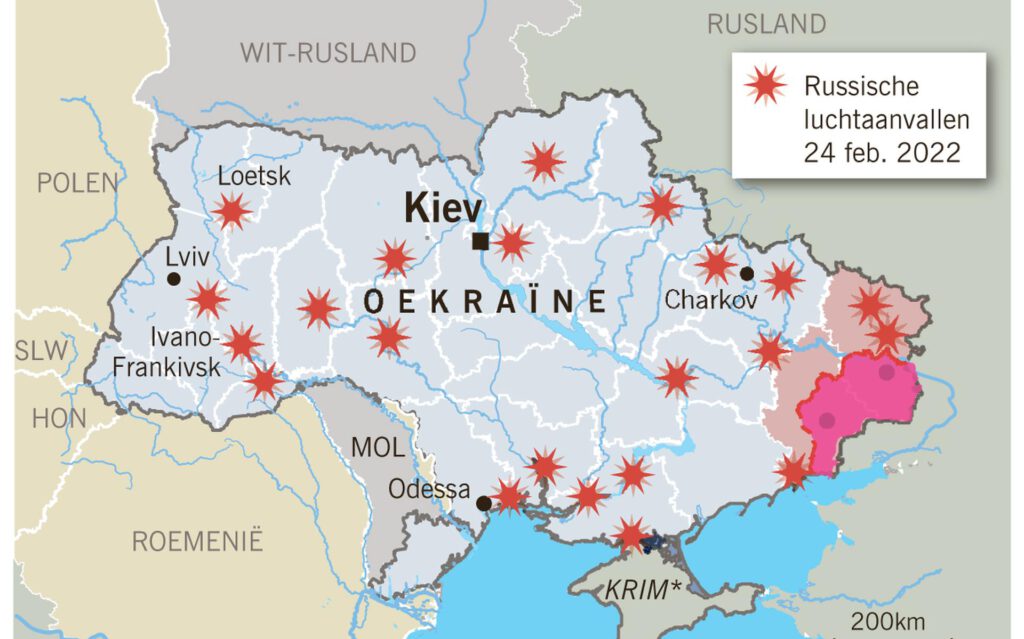
The winner takes all. Een slogan uit de sport. Wie wint, blijft winnen. Dat is wat in de oorlog tussen Oekraïne en Rusland gebeurt. In elke oorlog. Opiniemakers zijn er als de kippen bij, als de gesteunde partij dreigt te verliezen of er een bloedige patstelling dreigt. Floor Rusman (NRC 9/3/24) cum suis willen dan goedbedoelde twijfel zaaien bij het vasthouden aan die slogan en langzaamaan naar een wapenstilstand toewerken. Dezelfde persvrijheid, die de Amerikanen dwong hun Vietnam oorlog op te geven. De invasie van Rusland in Oekraïne was ondenkbaar. De reflex was alle hens aan dek om Oekraïne te helpen de agressor te verdrijven, maar zonder laarzen op de grond. Dat was anders bij het begin van de eerste wereldoorlog, waar naties euforisch hun jarenlang opgebouwde spanning ontlaadden op het slagveld. De oorlog nu aan de oostgrens van Europa heeft daar trekken van. The winner takes all: de eerste wereldoorlog zou binnen 6 maanden voor de Kerst afgelopen zijn. Maar er ontstond een langdurige, bloedige patstelling. Na inmenging van de VS eindigde de oorlog eigenlijk simpel: de aanvoerlijnen van Duits oorlogsmaterieel waren te lang om de strijd vol te houden. Niet het kritische thuisfront, maar materieelgebrek kostte Duitsland de kop. Grote stappen, snel thuis: ook het militair onvermogen dwong Nazi-Duitsland in de tweede wereldoorlog op de knieën. Nu zijn we mogelijk getuige van het voorspelbare einde aan de oorlog: het verlies van Oekraïne door gebrek aan oorlogstuig. Pleidooien van opiniemakers voor een wapenstilstand kunnen daar niets aan veranderen. Immers, the winner takes all.
The winner takes all. A slogan from sports. Whoever wins, keeps winning. That is what is happening in the war between Ukraine and Russia. In every war. Opinion makers are quick to respond when the supported party threatens to lose or a bloody stalemate threatens. Floor Rusman (NRC 9/3/24) cum suis want to sow well-intentioned doubt by sticking to that slogan and slowly working towards a ceasefire. The same freedom of the press that forced the Americans to give up their Vietnam war. Russia’s invasion of Ukraine was unthinkable. The reflex was all hands on deck to help Ukraine drive out the aggressor, but without boots on the ground. This was different at the start of the First World War, where nations euphorically discharged the tension they had built up for years on the battlefield. The war now on the eastern border of Europe has features of this. The winner takes all: the First World War would end within 6 months before Christmas. But a long, bloody stalemate ensued. After US intervention, the war actually ended simply: the supply lines of German war material were too long to sustain the battle. It was not the critical home front, but a lack of equipment that cost Germany its head. Big steps, home quickly: military inability also forced Nazi Germany to its knees during the Second World War. Now we may be witnessing the predictable end to the war: the loss of Ukraine due to lack of war equipment. Pleas from opinion makers for a ceasefire cannot change that. After all, the winner takes all.
Ricky Turpijn



